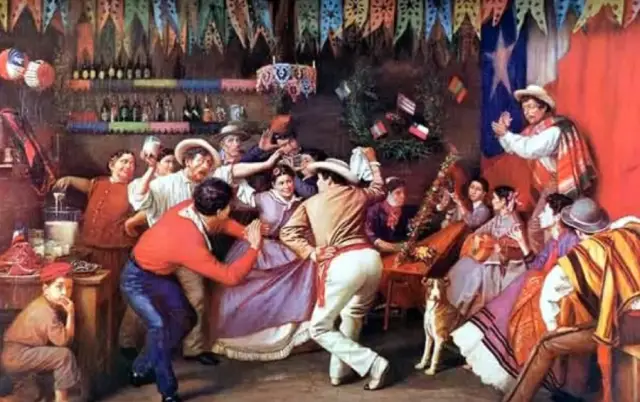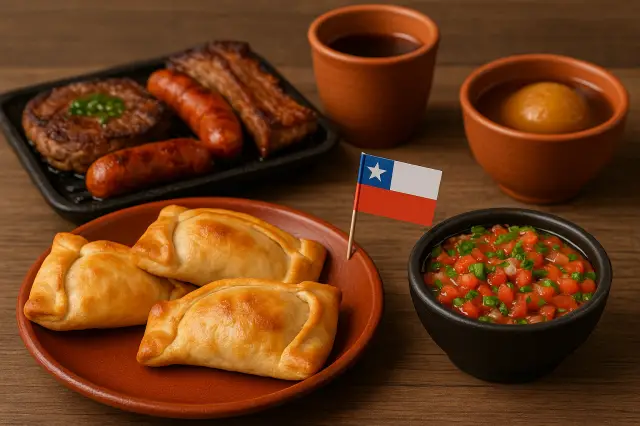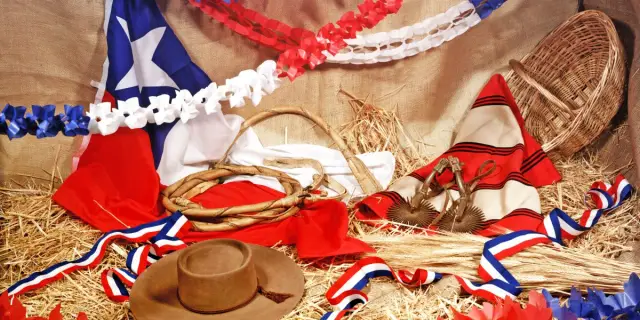The Chilean National Holidays are the country's most emblematic celebration, commemorated every September 18th and 19th . This holiday not only commemorates the beginning of the independence process but also represents a vibrant manifestation of Chilean national identity. During these days, Chile is filled with color, music, traditions, and typical flavors that reinforce the pride of being Chilean. Over the years, "Dieciocho" has become one of the most anticipated holidays, a time of family reunion, popular joy, and cultural expression. In many regions, celebrations begin even days before and can extend until September 20th, calendar permitting.
History of September 18th
September 18, 1810, marked a turning point in Chilean history with the formation of the First National Governing Junta. This event marked the beginning of formal independence from Spanish rule, officially achieved in 1818. Although initially an administrative act, over time this date became a symbol of freedom and sovereignty. The first celebrations were rather sober, but over the years they expanded with public events, parades, masses, and popular festivals.
The significance of September 18th lies not only in its historical significance, but also in what it represents for the country's collective conscience. Every year, millions of Chileans commemorate this day as a reaffirmation of their roots and culture, remembering those who fought for national freedom. Furthermore, September 19th is celebrated as Army Glories Day, further reinforcing the patriotic spirit of these dates.

Typical traditions and customs
The traditions during Chilean National Holidays are numerous and reflect the country's cultural fusion. Some of the most iconic include:
The inns and ramadas
Fondas are temporary festive spaces, set up in parks or open spaces, where celebrations take place with music, dancing, food, and games. These structures, decorated with garlands and Chilean flags, offer a cheerful and welcoming atmosphere for people of all ages. The larger ones include live shows, food courts, traditional games, and dance floors for enjoying a well-tapped cueca.
The national dance: the cueca
The cueca is the quintessential traditional dance. It is performed by couples simulating a flirtation between a rooster and a hen, handkerchief in hand and tapping their feet. During these holidays, it is common to see cueca competitions, both in schools and at public events. It is a form of emotional and symbolic connection with national folklore.
Typical Chilean games
Among the most popular games are the "emboque" (a type of game), the "top of the world," the "hopscotch" (a type of game), the sack race, and the "pole encebado" (a type of game). These are ideal family activities, where adults and children can share laughter and memories. The inns also offer fairground games such as target shooting and the "miraculous catch" (a type of game), which the little ones love.
Gastronomy: Flavors that unite Chileans
Traditional food is another of the main attractions of the Dieciocho region. The Dieciochero menu varies from north to south, but there are certain essential dishes that are common throughout the country:
Empanadas de pino: Baked pastry filled with meat, hard-boiled egg, olives, and onion. They are a national culinary symbol.
Chilean barbecue: Grilled or cooked over charcoal, with cuts such as veal tenderloin, ribs, sausages, and anticuchos. Always accompanied by traditional salads such as Chilean salad.
Mote con huesillo: A sweet drink made from mote wheat and dried peaches in syrup. Very refreshing and typical of this time of year.
Chicha and red wine: The most popular drinks during the celebration. Quasídias and Burgundy wines are also consumed in fondas and ramadas.
The flavors of Fiestas Patrias not only delight, but also evoke memories, family reunions, and a culinary identity that transcends generations.

Tips for celebrating an unforgettable Fiestas Patrias
Celebrating your eighteenth birthday can be a unique experience if you keep a few tips in mind:
Plan ahead: Make reservations at popular restaurants, buy ingredients before price increases, and organize your family barbecue.
Respect health and traffic regulations: Every year, more and more controls are being implemented to prevent accidents. If you're going to drink, don't drive.
Decorate your house with flags and garlands: The atmosphere is also part of the celebration.
Support local businesses: Buy artisanal products, empanadas from traditional bakeries, or meat from national producers.
Participate in cultural activities: Attend parades, municipal events, fairs, or cueca competitions. It's a way to experience the patriotic spirit.
Frequently asked questions about the National Holidays
Why are Fiestas Patrias celebrated on September 18?
This commemorates the First National Government Junta of 1810, which marked the beginning of Chile's independence from Spanish rule.
What do Chilean fondas do?
Cueca is danced, traditional food is eaten, traditional music is listened to, and Creole games are played. These are the heart of popular celebrations.
Is it mandatory to raise the Chilean flag on these dates?
Yes, according to Law 20.537, it is mandatory to fly the national flag on homes and public and private buildings on September 18 and 19, in good condition and correctly.
What dishes are typical of September 18th?
Empanadas de pino (pine empanadas), asado (roast), mote con huesillo (a type of meat with hues), anticuchos (a type of pebre), and drinks such as chicha (a type of wine), wine, and the traditional "terremoto" (earthquake).
The spirit of the Chilean Eighteenth
Chile's National Holidays are much more than a simple celebration: they are a profound expression of national identity, historical pride, and family unity. Through their traditions, music, games, and flavors, Chileans celebrate not only their past, but also their shared present and future. Participating in these festivities is an open invitation to rediscover the soul of Chile, where every cueca danced, every empanada shared, and every flag raised represents the heart of a nation that values its freedom and its customs.
